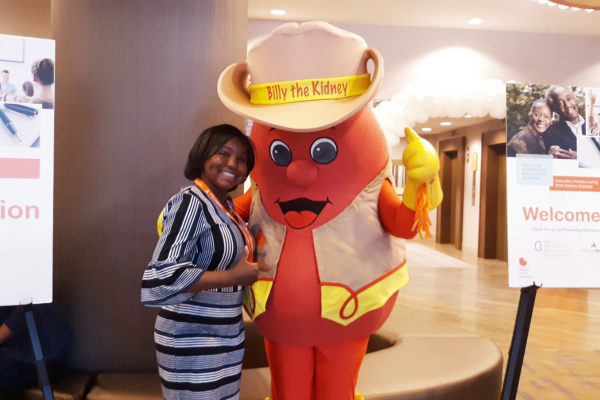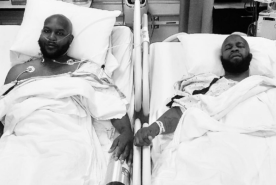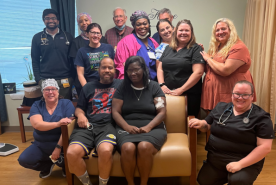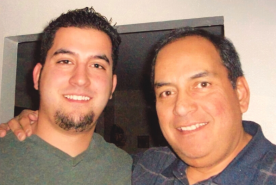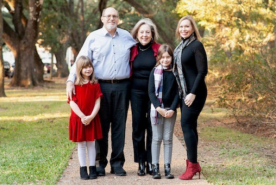April 06, 2023
When Precious McCowan lost her child and kidney transplant it would have been easy to succumb to the tragedy. Instead, she channeled her grief into advocacy and is determined to enhance the lives of those impacted by kidney disease.
Read on to learn how Precious overcame adversity, using her experience to positively impact the world.
Precious' kidney disease diagnosis
Precious was diagnosed with diabetes when she was nine. Her parents made sure she followed a strict diabetes diet, attended doctor's appointments, and took medication to keep it under control. However, when Precious went off to college, she put her health on the back burner, instead focusing on her studies and having fun with friends.
"I did not take charge of my health like I was taught to do. My diabetes was out of control those four years. I came home from college in 2009 after graduating, feeling nauseated," said Precious. "After going to the doctor, I found out my blood sugar was out of control and I had high blood pressure. They also found a dip in kidney function."
A year later, Precious' doctor saw a further decline in kidney function and recommended her to a nephrologist. Before she could get an appointment, Precious was hospitalized with an illness and diagnosed with stage 3b kidney disease.
"I was introduced to a kidney dietitian and received resources about dialysis. They were preparing me for dialysis because they thought my kidneys would fail soon. I didn't get the opportunity to hear much about prevention," Precious said. "I wish that they had offered me mental health help. I didn't know what the future would look like for me and no one asked how I was dealing with this diagnosis."
Do you need support? You aren't alone! Join NKF Peers, our peer mentoring program that connects you with trained mentors who have been there themselves.
Getting a kidney and pancreas transplant
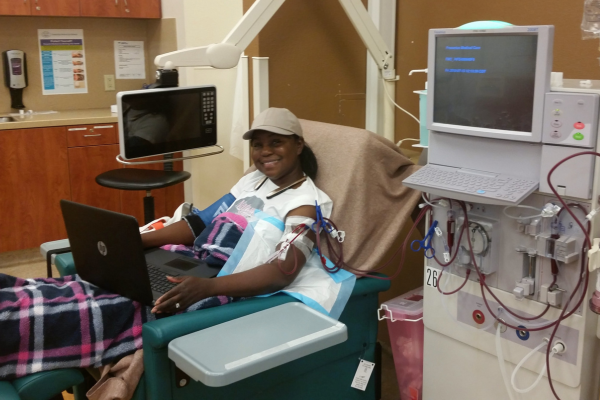
Sadly, Precious' kidneys did quickly fail and she started in-center hemodialysis.
"Everything that I love to do, even starting my life as a new wife and mom was put on hold. It was like my fairy tale was turning into a nightmare. I couldn't believe I would have to start dialysis so young," Precious said. "I thought my kidneys could be fixed, but I learned that you can't fix kidney damage that's been done. As soon as I started in-center hemodialysis, I finished up the transplant waitlist process and was officially listed."
Four months later, Precious got the call–a pancreas and kidney were available for her! The surgery went well, and she thoroughly enjoyed the next seven months before experiencing every parent's worst nightmare.
"One day my two-year-old son had an asthma attack. I gave him his breathing treatment but it didn't work very well so I brought him to his doctor's office. They did another breathing treatment but he passed out and was rushed to the hospital," Precious said. "I was going back and forth to the transplant center and worrying about my son and his stability. Three days later he was declared brain dead due to delayed CPR."
Precious and her husband made the courageous decision to donate their son's organs and began making arrangements for his funeral. Four days later, Precious went into kidney rejection and was hospitalized.
"I remember the medical director telling me they would do their best to fix me up so I could leave the hospital for my son's service," Precious said. "They told me they would try to save my transplants but I woke up in ICU on a dialysis machine and wasn't able to attend my son's funeral. Once again, I thought my life was over–This was a bad dream that I was going to wake up from soon."
Learn more about kidney-pancreas transplants (SKP).
Finding purpose as an advocate
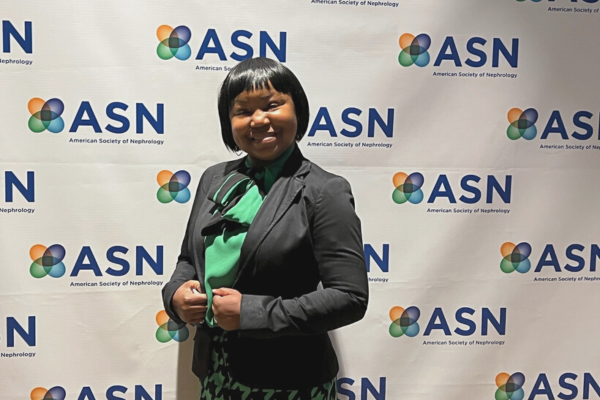
It took Precious some time to adjust to her new circumstances, but once she did, everything changed. In 2015, she started mentoring at her dialysis center, joined multiple kidney disease organizations as a patient advocate, and became a Voices for Kidney Health Advocate. In 2019, Precious received a second transplant but had to return to dialysis in early 2023.
"I was inspired to go back to school to get my Master's degree in Advanced Studies in Human Behavior and am now finishing up a Ph.D.," Precious said. "My advocacy work keeps growing and growing. The NKF-ASN task force even asked for my perspective on changing the race-based eGFR equation. I and one other patient helped develop the new race-free eGFR equation that you see today."
Precious' next goal is to improve access to home dialysis: "I'm now facing barriers with home dialysis. Medicare and Medicaid do not cover a staff assistant to come out to their home for training. You have to go to a training center five days a week, four to five hours a day for six to eight weeks. Commercial insurance will cover a staff assistant to come train you at home, but the majority of people receiving home dialysis receive Medicare or Medicaid."
Add your voice to The Improving Access to Home Dialysis Act to help people like Precious receive the quality care they deserve.
Despite the numerous challenges she has faced, or perhaps because of them, Precious is living a life full of purpose and passion.
“My success and passion for thriving have come from advocacy. Being engaged with individuals in the kidney community, having that opportunity to share my experience," Precious said. "Not many people can say this, but I think I am better because of all that I went through. I'm now fulfilled because I'm helping people by advocating."
See all the ways you can take action today to better the lives of those living with kidney disease.
